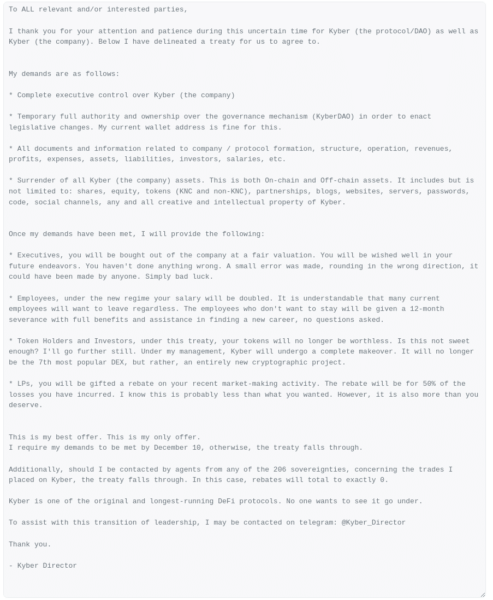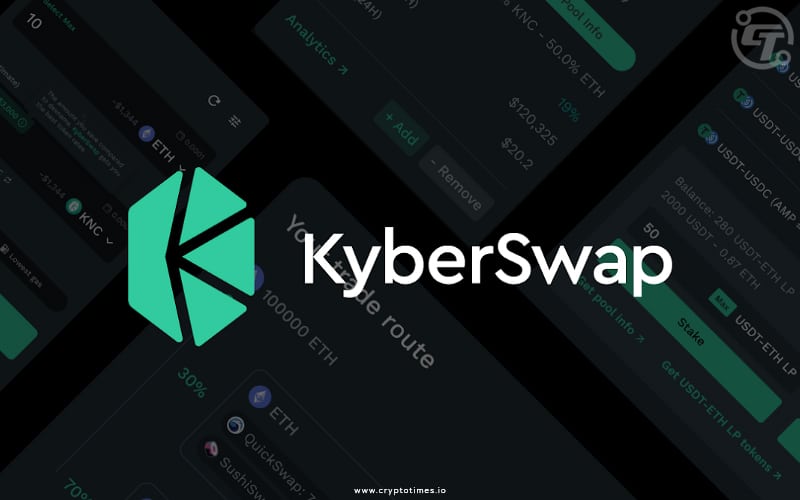The hacker behind KyberSwap’s $46 million exploit has shared a message with the KyberDAO Multisig wallet demanding to become Kyber Director and taking complete control over the company.
In the onchain encoded message, the hacker has stated several demands as a part of the settlement and asked to be granted temporary authority and full ownership over KyberDAO “in order to enact legislative changes.”

The hacker also demanded access to all company documents, including operations, structure, finance reports, asset-liabilities and more.
The hacker made the following demands:
- Complete control over the company
- Full authority and ownership over KyberDAO temporarily
- Access to company documents and reports, including structure, operations, finance, and asset-liabilities
- Surrendering of all on-chain and off-chain assets of the company, including shares, equity, and tokens, along with website, social credentials, and intellectual property
The message states that if all these demands are fulfilled, then only the settlement will move forward. Under the new direction, all the executives will be freed from the team, whereas employees will be granted double salaries.
“Under my management, Kyber will undergo a complete makeover. It will no longer be the 7th most popular DEX, but rather, an entirely new cryptographic project,” said the hacker.
The settlement also includes a 50% refund for Kyber’s liquidity providers (LPs). “I know this is probably less than what you wanted. However, it is also more than you deserve,” the message reads.
Hacker has given a deadline of December 10 for the settlement, and if demands are not met, they will not refund any amount. It seems that the funds stolen in the exploit might be used to further operate Kyber and support its growth and development, as the hacker sees potential in the protocol.
“Kyber is one of the original and longest-running DeFi protocols. No one wants to see it go under,” Hacker said. “ Under my management, Kyber will undergo a complete makeover. It will no longer be the 7th most popular DEX, but rather, an entirely new cryptographic project.”







